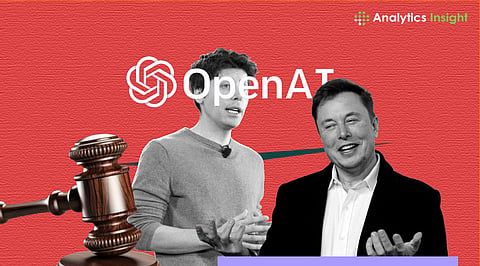

Last Tuesday, billionaire entrepreneur Elon Musk moved to dismiss his lawsuit, denouncing ChatGPT maker OpenAI and its CEO Sam Altman for abandoning the startup’s unique mission of creating artificial intelligence for the advantage of humankind and not for profit.
According to a filing in San Francisco Superior Court, Elon Musk's attorneys asked the California state court to dismiss the claim, initially recorded in February, without giving a reason for the move.
A Superior Court judge there was arranged to listen to OpenAI’s bid to expel the claim at a hearing planned for Wednesday.
OpenAI and an attorney for Musk did not instantly react to demands for comment. Musk dismissed his case without prejudice, which implies he might refile it at another time. The claim checked a summit of Musk’s long-simmering opposition to OpenAI, a startup he co-founded, which has since become the confront of generative AI through billions of dollars in financing from Microsoft.
Elon Musk established his claim artificial intelligence startup, xAI, last July. In May, it raised $6 billion in arrangement B funding to reach a post-money valuation of $24 billion. The claim said Altman and OpenAI co-founder Greg Brockman approached Musk to create an open-source, non-profit company, but the startup, established in 2015, is presently centered on making money.
The lawsuit said OpenAI “set the establishing agreement aflame” last year when it discharged its most capable language model, GPT -4.
Musk, in the lawsuit, asked a judge to force OpenAI to make its research and innovation available to the public and to prevent the startup from utilizing its resources, including GPT-4, for the financial advantage of Microsoft and others.
OpenAI had argued in a court filing that the claim was based on incoherent claims, depicting it as a contrived endeavor by Musk to develop his own Artificial Intelligence interface. “Seeing the remarkable innovative advances OpenAI has accomplished, Musk presently wants that victory for himself,” OpenAI’s lawyers said.
Musk, in an April filing, said OpenAI and chatGPT were attempting to “advance arguments that are based on debated facts” that were beyond the scope of the lawsuit.
